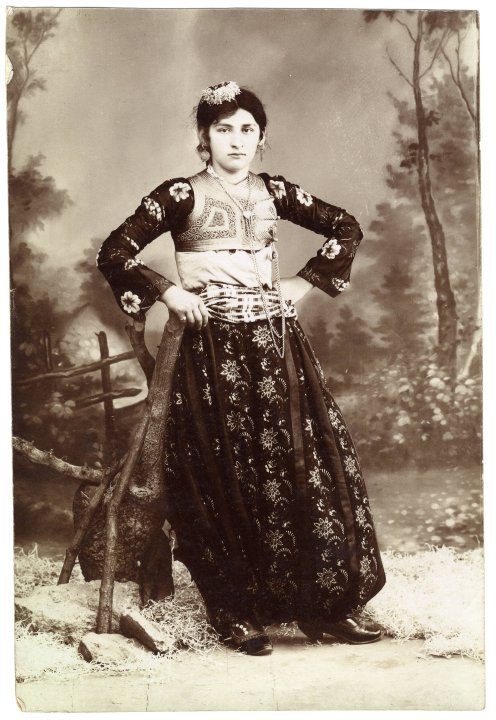Economy Of Albania
Following World War II, nevertheless, mass migration from the countryside doubled Albania’s urban inhabitants. During the communist period, deliberate communities were built in some elements of the countryside to accommodate the employees of big collective farms, a lot of which were built around previously private estates. Following the collapse of communism, these farmers became impartial smallholders. Even although rural-to-city migration accelerated within the 1990s, in the early twenty first century more than two-fifths of the nation’s population nonetheless lived in rural areas.
Languages
Many camps around Kosovo continue to accommodate 1000’s of Internally Displaced People, all of whom are from minority groups and communities. The relations between Kosovar Albanians and Kosovar Serbs have been hostile since the rise of nationalism within the Balkans in the course of the 19th century. During Communism in Yugoslavia, the ethnic Albanians and Serbs have been strongly irreconcilable, with sociological studies through the Tito-period indicating that ethnic Albanians and Serbs not often accepted each other as neighbors or pals and few held inter-ethnic marriages.
Albanian Nationality Law
The subsequent political and demographic historical past of Kosovo isn’t known with absolute certainty until the thirteenth century. Archaeological findings recommend that there was steady inhabitants recovery and development of the Slavic culture seen elsewhere throughout the Balkans. The region was absorbed into the Bulgarian Empire in the 850s, where Byzantine tradition was cemented in the area.


Italy has a historic Albanian minority of about 500,000, scattered across Southern Italy, known as Arbëreshë. Approximately 1 million Albanians from Kosovo are dispersed all through Germany, Switzerland and Austria. These are mainly immigrants from Kosovo who migrated during the Nineteen Nineties.
Beginning in March 1981, Kosovar Albanian college students of the University of Pristina organised protests seeking that Kosovo turn out to be a republic inside Yugoslavia and demanding their human rights. The protests had been brutally suppressed by the police and army, with many protesters arrested.
The name is derived from the ancient tribe of the Dardani, possibly related to a Proto-Albanian word dardā, which implies “pear”. The former Kosovo President Ibrahim Rugova had been an enthusiastic backer of a “Dardanian” identity and the Kosovan flag and presidential seal refer to this national identification. However, the name “Kosova” remains extra extensively used among the Albanian inhabitants. Books about Albania and the Albanian folks (scribd.com) Reference of books (and some journal articles) about Albania and the Albanian individuals; their historical past, language, origin, tradition, literature, and so forth. Albanian is an Indo-European language and occupies an unbiased department within this family.
The region was the core of the Serbian medieval state, which has also been the seat of the Serbian Orthodox Church from the 14th century, when its standing was upgraded to a patriarchate. Kosovo was a part of the Ottoman Empire from the fifteenth to the early 20th century. In the late nineteenth century, it became the centre of the Albanian National Awakening.
Followers of the Roman Catholic Church are predominantly Albanians with ethnic Serbs following the Eastern Orthodox Church. In 2008, Protestant pastor Artur Krasniqi, primate of the Kosovo Protestant Evangelical Church, claimed that “as many as 15,000” Kosovar Albanians had converted to Protestantism since 1985. The Law on the Use of Languages offers Turkish the standing of an official language in the municipality of Prizren, no matter the dimensions meet albanian singles of the Turkish community dwelling there. Albanian is spoken as a primary language by approximately 95% of the population, while Bosnian and Serbian are spoken by 1.7% and 1.6% of the inhabitants, respectively. Due to the boycott of the census of North Kosovo, Bosnian resulted in being the second largest language after Albanian however, Serbian is de facto the second largest language in Kosovo.
Albanians in Ukraine are an ethnic minority group located mainly in Zaporizhia Oblast and Budjak. SlovakiaSee Albania–Slovakia relationsThe multi-national Communist armed forces’ sole joint motion was the Warsaw Pact invasion of Czechoslovakia in August 1968. All member nations, with the exception of the People’s Republic of Albania and the Socialist Republic of Romania participated in the invasion.
Rather than hiding the Jews in attics or the woods, the Albanians gave them clothes, gave them Albanian names and handled them as part of the household. The double-headed eagle is the nationwide and ethnic image of all Albanian-speaking people. The symbol appears in a stone carving relationship from the tenth century as the Principality of Arbanon was established.
Beginning in August, a “Troika” consisting of negotiators from the European Union (Wolfgang Ischinger), the United States (Frank G. Wisner) and Russia (Alexander Botsan-Kharchenko) launched a brand new effort to achieve a standing end result acceptable to both Belgrade and Pristina. A declaration of independence by Kosovar Albanian leaders was postponed until the tip of the Serbian presidential elections (four February 2008). A significant slice of politicians in each the EU and the US had feared that a premature declaration may boost help in Serbia for the nationalist candidate, Tomislav Nikolić. Inter-ethnic tensions continued to worsen in Kosovo throughout the Nineteen Eighties. In 1989, Serbian President Slobodan Milošević, employing a mix of intimidation and political maneuvering, drastically decreased Kosovo’s particular autonomous status within Serbia and began cultural oppression of the ethnic Albanian population.
The local weather is strongly influenced by its proximity to the Adriatic Sea within the west, the Aegean Sea in the south but also the European continental landmass within the north. The Global Peace Index 2015 ranked Kosovo 69th out of 163 countries.
